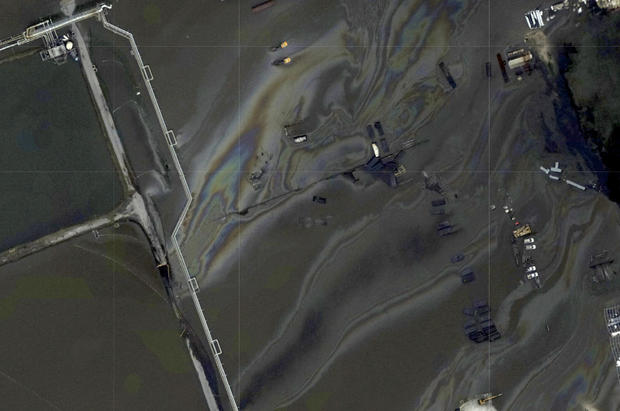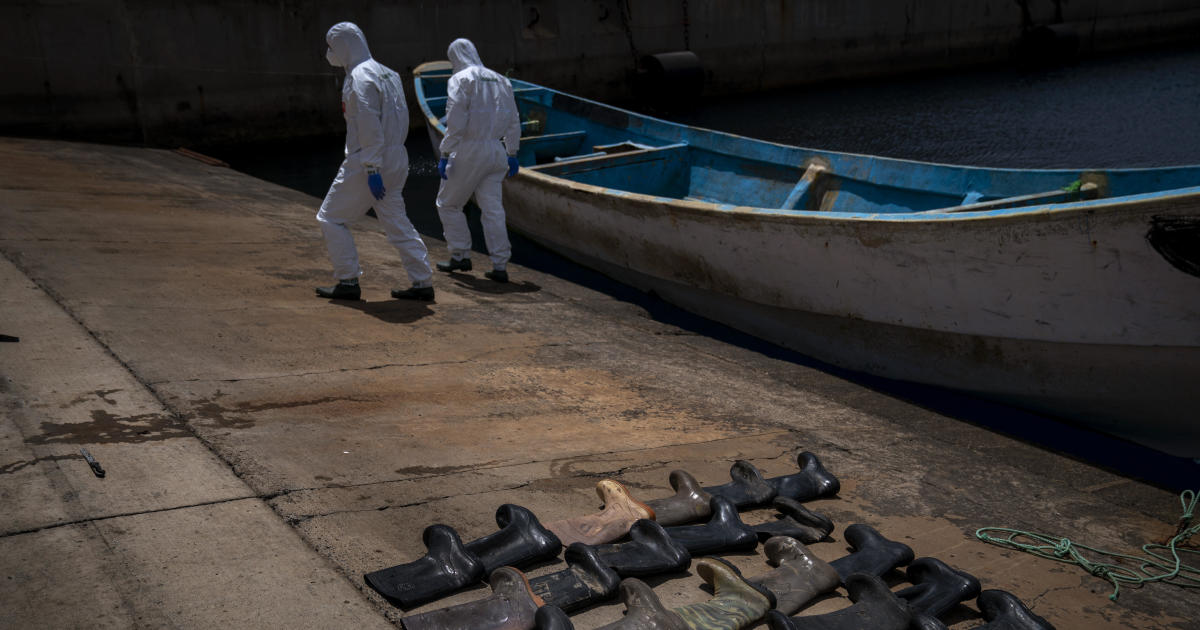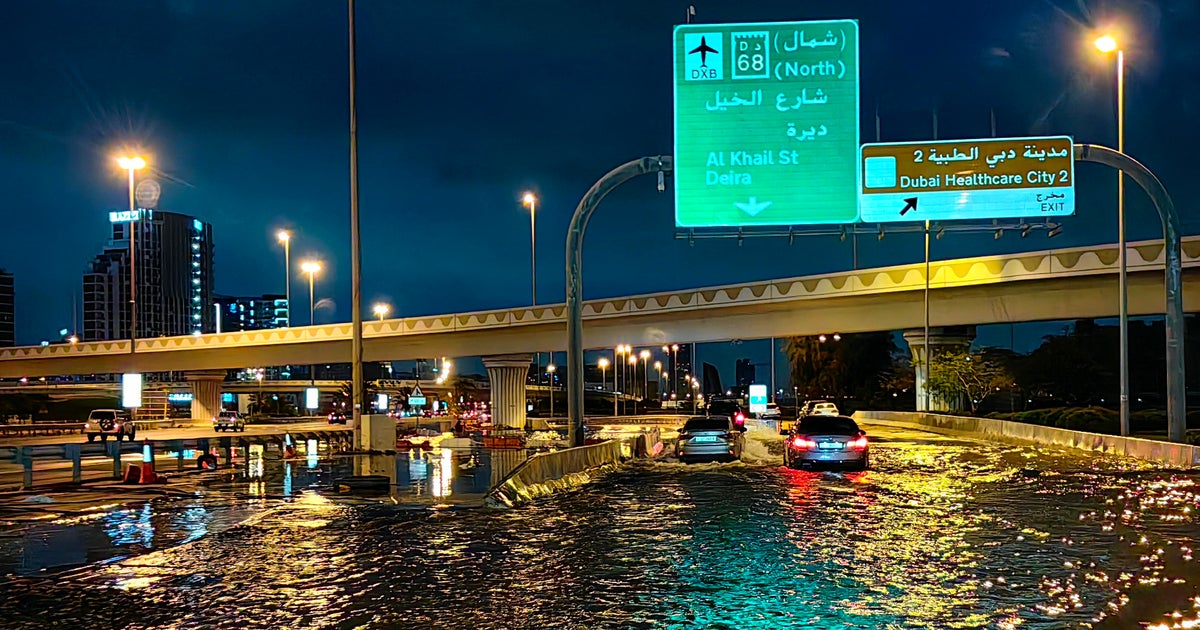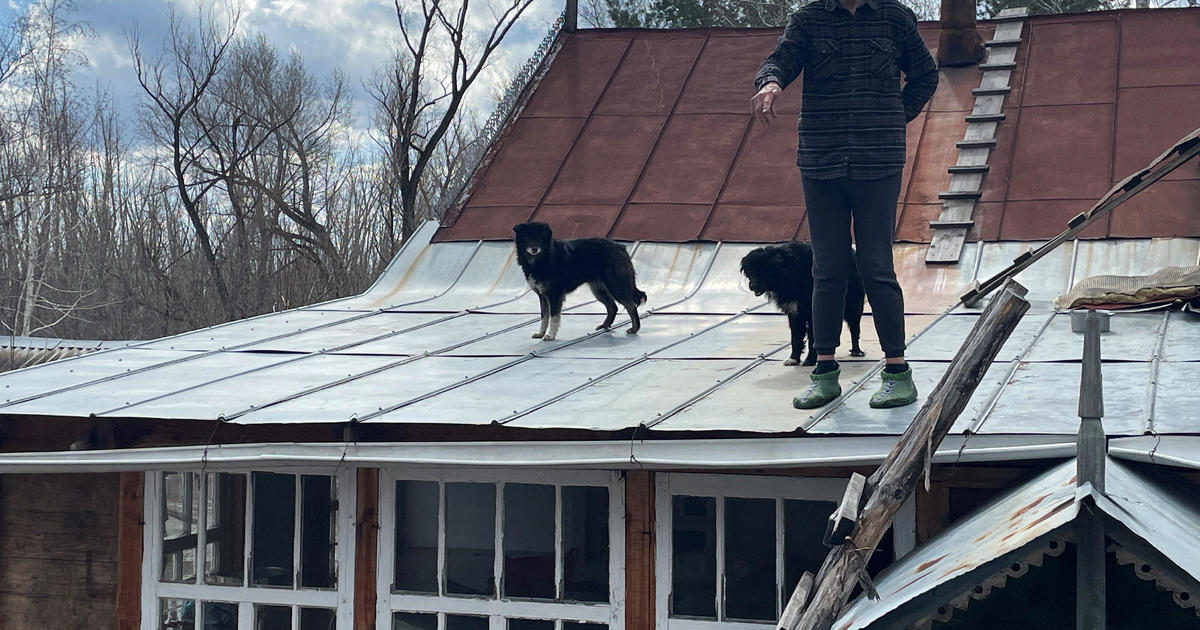U.S. Coast Guard investigating nearly 350 reported oil spills after Hurricane Ida
The U.S. Coast Guard said it's investigating reports of nearly 350 oil spill incidents in the aftermath of Hurricane Ida. The Category 4 storm, which hit Louisiana last month, shut down nearly 95% of the region's crude oil and gas production.
"Coast Guard crews from across the nation...have deployed throughout Southeastern Louisiana to conduct hazard assessments in order to identify and prioritize threats to the environment and navigable waterways," the Coast Guard said in a statement. "These assessments are essential to ensuring waterways are safe for marine traffic and ensuring that potential pollution hazards are expeditiously identified and mitigated."
On Sunday, Coast Guard crews conducted overflights focusing on two locations among the hundreds reported, the federal agency said.
Last week, the National Oceanic and Atmospheric Administration took aerial images of an oil spill two miles south of Port Fourchon, Louisiana, and they were then published by the Associated Press.
Lieutenant John Edwards of the U.S. Coast Guard told CBS News in a statement Saturday that the agency was "aware of and responding" to reports of pollution in the area.
Talos Energy — a Houston-based energy provider to the Gulf of Mexico — hired nonprofit oil-spill group Clean Gulf Associates to respond to the spill. Talos also contracted divers to locate the pollution's source, which on Sunday was attributed to a ruptured underwater pipeline, Edwards said.
In a statement, Talos said that the pipeline responsible for the leak does not belong to its facilities. The company said it is working with Louisiana officials and the Coast Guard to identify who the ruptured pipe belongs to.
"Although the spill was unrelated to our operations, it was important to mobilize and identify the source and to contain the release to reduce safety and environmental risks," John Spath, Talos' senior vice president of production operations, said. "Though we have confirmed our assets are not involved, Talos is committed to establishing containment and control of the release."
As of Tuesday, the Coast Guard said crews did not observe active discharge at the Bay Marchand Port or near Enterprise, two sites where spillage was previously reported.
But approximately five miles away from the Bay Marchand Port, crews located a different oil spill. The Coast Guard said estimates of the amount of oil released from company S2 Energy have not yet been determined, but the impacted area is about 100-yards long and 100-yards wide.
The Coast Guard said S2 Energy has contracted an oil spill response organization "in order to mitigate the spread and collect any recoverable product."
S2 Energy did not immediately respond to CBS News for comment.
Hurricane Ida devastated New Orleans on August 29, killing at least 68 people and leaving more than a million residents without power. In its aftermath, the powerful storm brought fatal flash flooding and tornadoes to parts of the East Coast.
On Tuesday, the U.S. Environmental Protection Agency issued an emergency fuel waiver for Port Fourchon, Louisiana, to "help support critical marine operations" due to the fuel shortage in the area. The waiver is effective immediately and ends September 16.
President Biden on Tuesday called for massive infrastructure spending amid the recent "extreme weather," warning that "we don't have any more time" to approach climate change.
"Every part of the country is getting hit by extreme weather," Mr. Biden said Tuesday while surveying the impact of the storm in New Jersey. "And we're now living in real time what the country is going to look like. And if we don't do something — we can't turn it back very much, but we can prevent it from getting worse. "





